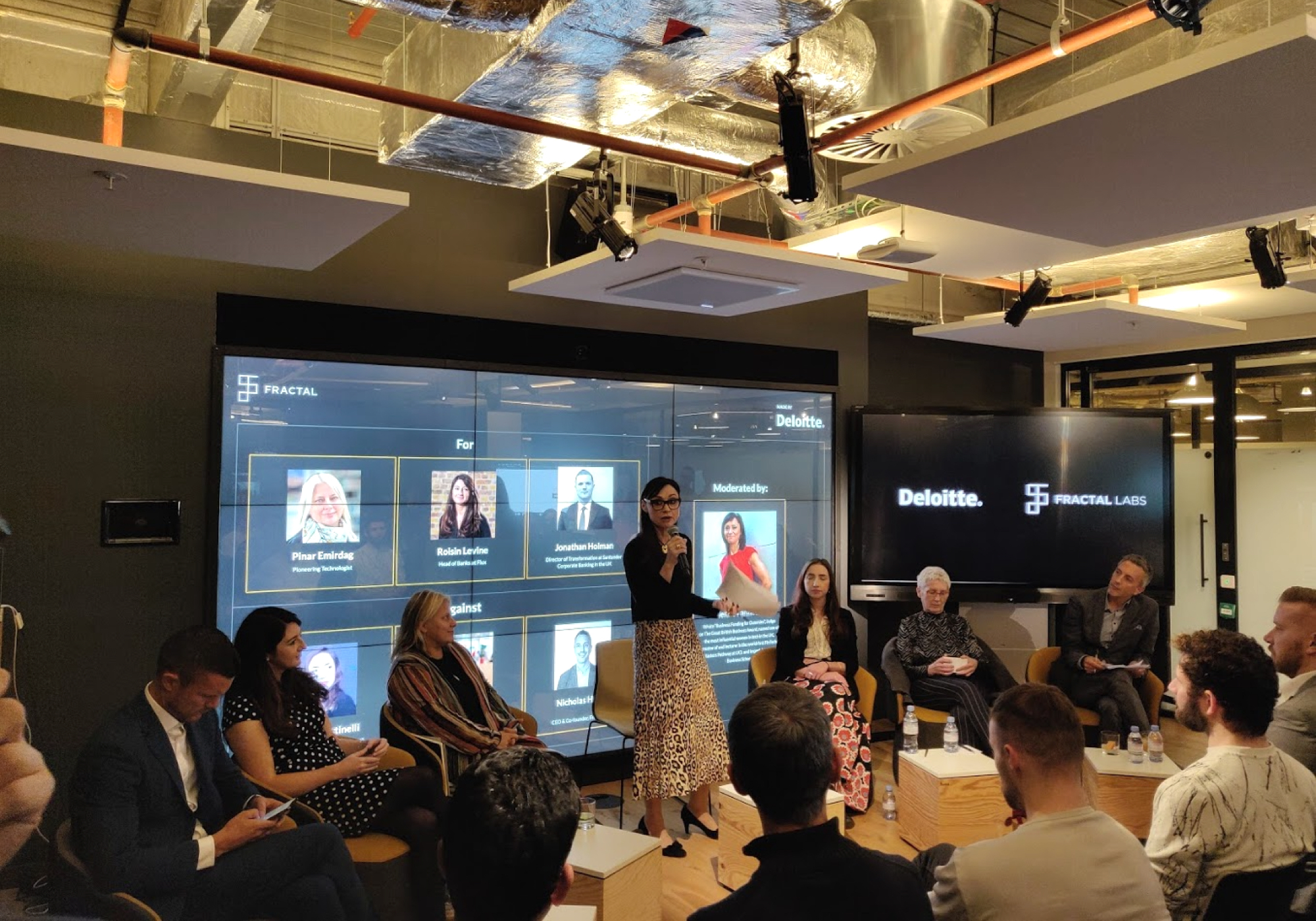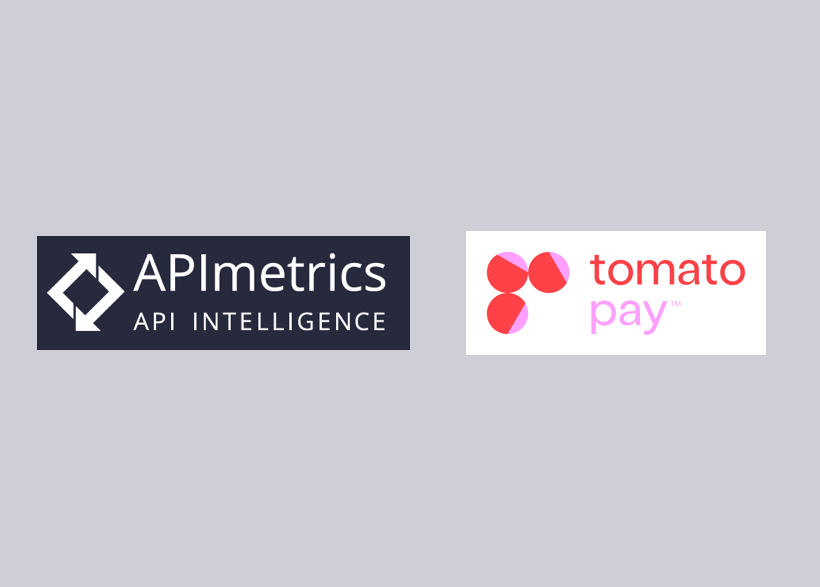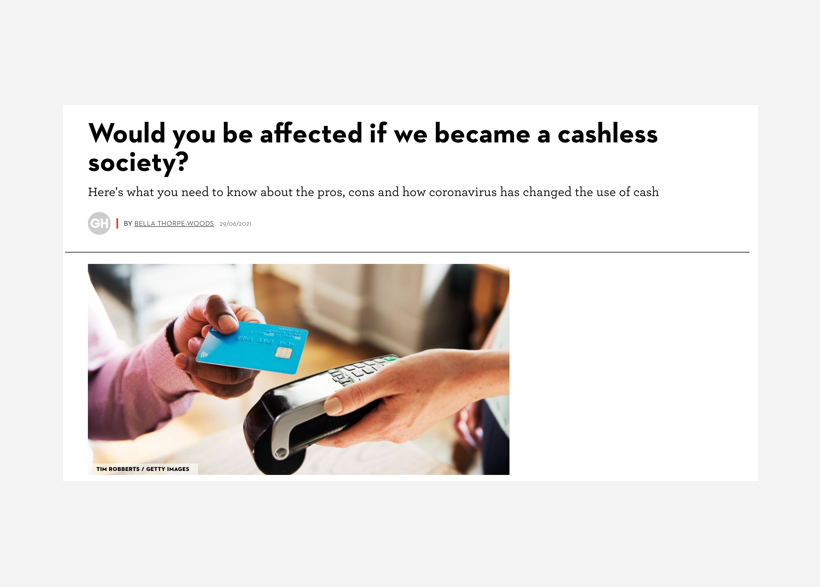On Tuesday 29th October, we had an incredible time hosting our flagship 2019 event alongside our sponsors for the night, Deloitte, with all ticket sales going towards a very worthy cause - homeless charity Beam.
Our motion for the night: “Be it resolved, non-bank brands will lead to the democratisation of business financial services” was hotly debated. Questions and audience participation continued 40 minutes after the debate stopped - a sure sign that the content struck a chord with everyone.
Our speakers for the night - World Remits’ Catherine Wines, Department of International Trade’s Philippa Martinelli, and tomato pays (formerly known as Fractal) CEO and co-founder, Nicholas Heller fought for the motion. Santander’s Jonathan Holman, pioneering technologist Pinar Emirdag, and Flux’s Roisin Levine fought against the motion. Our master of the show - the incredible Helene Panzarino, moderated and made sure that all speakers were kept on their feet throughout the hour-long discussion.
Some key takeaways from the night
- Banks are being complacent, although they have all the data they are avoiding niche sectors in banking.
- New players can use AI and machine learning quickly and effectively to better understand how to correctly serve small businesses.
- Misuse of data from tech companies has led to a break in trust.
- Branches are indeed closing, but context is important here, it means that banks realise they need to reach their users in different ways.
- PISP is incredibly disruptive.
- More regulation is needed to motivate banks to be disruptive, as banks are hyper-aware about being cautious.
- Players such as Paypal, Alibaba and Amazon are showing that big tech is becoming very well positioned to take over.
- Trust has to be regained after the crash in 2008, but are we saying that people don’t trust banks because they do. Customers still see loans provided by banks as much more secure, especially small businesses who are risk-averse.
It was very important to us that we weren’t hosting an event for the sake of hosting an event. We wanted to do something a little more provocative, something that will push both our speakers and the audience to discuss topics outside of their comfort zones, which it did.
The fintech industry has never been afraid to say it how it is. However, sometimes in open spaces, this freedom is not a given. PR and comms teams (myself included) tend to guard what is said externally, and with good reason. Saying the wrong thing no matter how small can be detrimental to any company.
That is why we applied the Chatham House rule. Our core aim was to have a frank conversation about the threat of tech-focused, new, financial players to incumbent financial institutions, and we believe that we reached our goal.
In the spirit of openness, and to encourage discussion and open-mindedness, some of our speakers argued against their personal opinions. We made sure that each speaker made it clear what they meant in their argument by ‘non-bank brands’ and ‘democratisation of financial services’. Non-bank brands could mean big technology companies such as Facebook and even Uber who announced two days ago that they were moving into the payments space, or fintechs such as ourselves. The democratisation of financial services could mean access to finance in the UK or developing countries.
We thoroughly enjoyed ourselves, and from initial feedback, we know everyone else did too!
A huge thank you to Deloitte for sponsoring, and to everyone who attended, participated and donated to our fundraiser for homeless charity Beam. We were able to raise £1,114, of which Fractal Labs donated £500. All money will help a homeless person for the long-term by funding their employment training.
We will be hosting more events in the near future, so watch this space.



.png)


